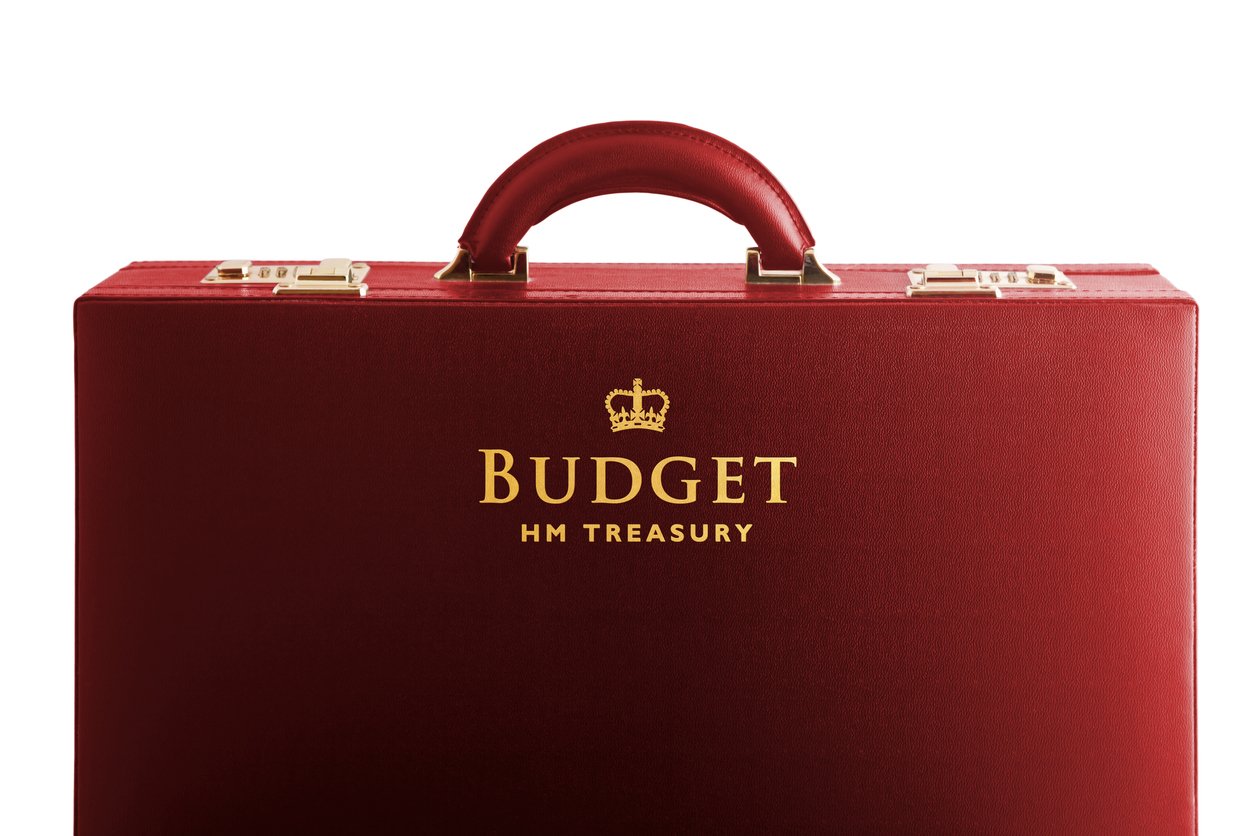The UK Budget 2021
The UK budget was delivered on the 3rd of March 2021 by Rishi Sunak on behalf of the government. This was an unusual budget as you would expect due to the COVID-19 pandemic and acted more as a statement and plan for recovery and support rather than the regular budget update. As such, a number of regular items and confirmations such as duty on tobacco were not included and therefore, we would expect to see a number of further announcements in the coming weeks.
The core of the budget was based on protecting the jobs and livelihoods of the British people and was broken into three key areas:
The full budget report can be found here:
https://www.gov.uk/government/publications/budget-2021-documents/budget-2021-html
In this special edition of the newsletter, we will look at some of the key areas of the budget report.
The Budget – Taxation and thresholds
In the budget, the chancellor confirmed that the personal allowance and base rate limit will increase by the Consumer Price Index (CPI) for the 2021/22 tax year and this was confirmed prior to the information around rate and threshold freezing. At the time of the initial announcement, CPI was set at 0.5% and as such, we see comparatively small increases in tax allowances and thresholds.
The current un-devolved personal allowance tax code of 1250L will therefore increase and the new personal allowance from the 6th of April will therefore be 1257L. We also received final confirmation to the adjustments and allowances applicable against the personal allowance.
The base rate limit also increases to £50,270 (including the personal allowance) increasing the point workers will commence taxation payments at 40% while the higher rate limit remains unchanged for 45% at £150,000. These are used for England, Wales, and Northern Ireland. Scottish Income tax for 2021/22 has already been confirmed through the Scottish government on the 28th of February.
As also announced in the budget, there will then be a freeze on the personal allowance and base rate limit until April 2026. There was no confirmation of the freeze on the higher rate threshold, however, it is expected that it is included. The same freeze will also be in place for:
The Budget – National Minimum and Living Wage
As was announced in the 2020 budget before the pandemic, National Living Wage will apply from 23 years of age in 2021, then reducing to 21 and this is expected by 2023. This is an important amendment to the highest rate of minimum pay, and it will therefore be essential payrollers fully audit NMW against age in April this year. Rates therefore will increase as is now the normal on the 1st of April or the start of the first full pay reference period on or after that date.
It was further announced in the budget this week that the Apprentice rate will be aligned in value with the 16- to 17-year-old rate with effect from April 2022.
The Budget – National Insurance
The new thresholds for National Insurance were confirmed pre-budget for 2021/22 and showed a lot of variance to the pattern of the last few years.
When we review the National Insurance rates, firstly the Upper Earnings Limit is aligned to tax thresholds, therefore for the 2021/22 tax year UEL and Upper Secondary Threshold (UST) have increased to £50,270, In line also with taxation, this will mean that this threshold will remain unchanged now until April 2026.
For the remainder of the thresholds, we see a change from the normal as firstly, the Lower Earning Limit remains unchanged at £120 per week (£6,240 per year), while the remainder of the thresholds increase by CPI.
There was also confirmation of the National Insurance holiday for veterans which we have covered in a previous newsletter and the announcement of a further Employers National Insurance holiday for the newly announced Freeports.
The National Insurance holiday will therefore be relief from employer’s secondary NICs on the earnings of eligible employees employed in the new Freeport areas but is still subject to approval from Parliament. The reason for the change is to encourage job creation at the new Freeport tax sites within Great Britain.
The new holiday will be available from April 2022 (or from the date when a site is designated as a Freeport tax site) until April 2026, with a possible extension to April 2031. Below we confirm the first Freeport locations announced within this year’s budget:
- East Midlands Airport
- Felixstowe and Harwich
- The Humber region
- The Liverpool City Region
- Plymouth Solent
- Thames Teesside
The Budget – Vehicles: Cars and Vans
Again confirmed prior to the budget, fuel benefit rates on company cars and vans have been increased and were initially confirmed on the 4th of February. As such cars will increase from the 6th of April to £24,600, vans £669. It was also confirmed the Benefit Scale charge on vans would increase by £100 to £3,500.
We also received confirmation that Private Mileage rates remain unchanged while fuel duty has been frozen.
Car Tax (VED) will increase by RPI and Company Car Tax rates and percentages twill continue in line with the 2020/21 announcement under the two company car schemes:
- For cars registered from 6th April 2020 – use WLTP (Worldwide Harmonised Light Vehicle Test Procedure)
- For cars registered before 6th April 2020 – use NEDC (New European Driving Cycle).
- SSP increases from £95.85 to £96.35 a week
- Parental Payments increase from £151.20 to £151.97 per week
The Budget – Sickness and Parental Payments
We had already received confirmation of Statutory Sick Pay (SSP) and Statutory Parental Payments rates increasing by CPI. As such this includes maternity, adoption, parental, shared Parental and Bereavement pay.
Also, in line with the extension to other forms of support during the pandemic, it was confirmed by Rishi Sunak that there would be a continuation of the COVID-19 SSP reclaim scheme (for those eligible) until further notice.
The Budget – COVID-19 worker and individuals Support
The key announcement at the start of the budget was confirmation of the extension to the Coronavirus Job Retention Scheme (CJRS) until the end of September, along with other areas of worker support. These included:
- Extension to the Self-Employed Income Support Scheme (SEISS) until the end of September
- Extension to the temporary Universal Credit increase until the end of September
- A further one-off payment of £500 to those on Working Tax Credit.
As part of the announcement the current relaxation in certain areas of other support were extended.
- The income tax exemption and NICs disregard for COVID-19 antigen tests provided by or reimbursed by employers.
- Employer reimbursed expenses covering the cost of home office equipment.
Both exemptions have been extended for 2021/22.
The Budget – The Coronavirus Job Retention Scheme
The Job Retention Scheme has so far supported 1.3 million employers, paying the wages of 11.2 million jobs, and paying out £53.8 billion in wages.
The budget confirmed the scheme will now extend from May to the end of September 2021
Employees will continue to receive a maximum of 80% of pay or £2500 (whichever the lower) for hours not worked. However, there will be changes as the scheme continues to the employer claimable amount as well as cover all employer costs through the entire period latest phase (National Insurance and Pensions) in the same way as the current scheme.
Employers can therefore claim the full amount in May and June then:
- Contribute 10% in July
- Contribute 20% in August and September
New eligibility rules mean employees who were on employers’ PAYE payrolls on or by the 2nd of March 2021 and on an RTI return with income on the same date will be eligible, but new entrants do not need to have been furloughed before.
We have so far not received any further updates to the guidance including details of the pay referenced for the new calculation although the majority of other rules and guidance will remain unchanged and we would expect to receive this in the coming weeks.
The Budget - The Self-Employed Income Support Scheme
As a further level of support, the government also confirmed further extensions to the SEISS scheme for those self-employed in the form of a further 2 grant periods for those eligible.
Fourth Grant – from February to April 2021:
This will be Payment of 3 months’ worth of 80% of average trading profits
- Paid in one instalment up to a cap of £7,500
- The claim will be available from late April
Self-employed individuals must have filed a 2019-20 Self-Assessment tax return to be eligible which brings a further group in to the scheme.
Fifth Grant – from May to September 2021:
This last grant will be available to the self-employed based on a turnover test.
If turnover has reduced by 30% or more:
- Payment of 3 months’ worth of 80% of average trading profits - paid in one instalment up to a cap of £7,500
If turnover has reduced by less than 30%:
- Payment of 3 months’ worth of 80% of average trading profits - paid in one instalment up to a cap of £2,850
- The claim will be available late July.


